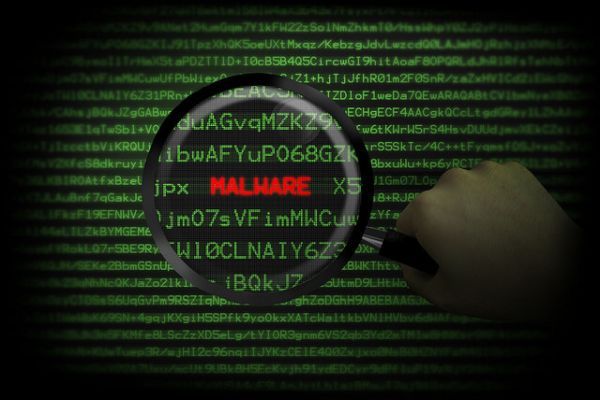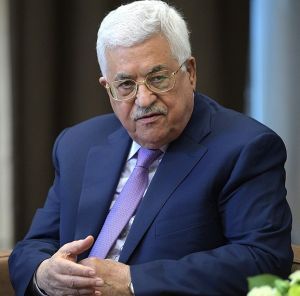Today’s Top Stories
1. Israel uncovered a Hamas “honey pot” network that sought to lure IDF soldiers into downloading infected apps onto their phones by posing as young women. The malware gave Hamas access to the phones’ location, photos, messages and contacts, and allowed the terror group to remotely operate the camera and microphone without the soldiers’ knowledge. As for the extent of the hacking, the Washington Post reports:
While it could not give exact numbers on how many soldiers were allegedly approached or duped into conversation with Hamas’s cyberoperatives, the army said hundreds of recruits reported being approached through their Facebook accounts. About 2 percent of those agreed to download the apps. It is possible that more people will come forward now that the information about the purported cyberthreat has been made public.
Hamas managed to compromise soldiers’ phones in a similar “honey pot” scam last year. See Lilach Shoval‘s take.

2. Israel’s Eurovision win is in jeopardy as a US label claims Netta Barzilai’s ‘Toy’ was copied from “Seven Nation Army,” a 2003 hit by the Detroit rock band, The White Stripes. According to Israeli media reports, if Universal Music Studios’ claim is proven in court, “it could disqualify Toy’s eligibility to participate in Eurovision and strip Israel of its win and hosting rights for the 2019 tournament.”
If you want to listen and judge for yourself, here are links to Toy and Seven Nation Army plus this mashup of both songs. The White Stripes broke up in 2011.
I presume Cyprus — which came in second place with Eleni Foureira’s Fuego— will host next year’s tournament if (and that’s a big if) Israel is indeed disqualified.
Join the fight for Israel’s fair coverage in the news
3. An Israeli law professor was tapped to head the UN Human Rights Committee. The JTA introduces us to Professor Yuval Shany of Hebrew University and the Israel Democracy Institute.
The Human Rights Committee is different from the more well-known Human Rights Council, which is generally hostile to Israel. The United States recently withdrew from the council.
The committee, which operates under the aegis of the High Commissioner for Human Rights, is a nonpolitical body that monitors the implementation of the International Covenant on Civil and Political Rights by its state parties.
4. The Environmental Impact of War: What exactly is the environmental impact of Palestinian terror kites and what can you do about it?
Israel and the Palestinians
• Prime Minister Benjamin Netanyahu lifted a ban on Knesset members and cabinet ministers visiting Temple Mount. The change in policy came after police recommended that parliamentarians be allowed to visit the holy site. See Times of Israel and Haaretz coverage.
The ban was put in place three years ago for security reasons. Lawmakers will be required to coordinate their visits with the police, and are limited to one visit every three months.
• The Palestinian Authority defiantly doubled down on its stipends for imprisoned terrorists and the families of “martyrs” a day after the Knesset passed a law cutting tax revenue transfers to Ramallah.

In conversations over the past few weeks, Abbas is said to have expressed little interest in the Gaza Strip’s distress. He remains very hostile to Hamas, which he accuses of sabotaging the internal Palestinian reconciliation process and of the assassination attempt on PA Prime Minister Rami Hamdallah during a visit to Gaza in March. As a result, the PA chairman has not responded to the feelers that have been put out by Israel, the United States and Nickolay Mladenov, the UN secretary-general’s envoy to the Middle East, about advancing the rehabilitation of the Strip.
• In Paris, IDF chief spokesman Brig. Gen. Ronen Manelis briefed French lawmakers on the Gaza situation. According to the Times of Israel:
Manelis’s comments on the Gaza protests may have been meant as a rebuttal to the official stance of French President Emmanuel Macron, who said in a meeting with Prime Minister Benjamin Netanyahu in Paris on June 6 that the violence was caused by the US moving its embassy from Tel Aviv to Jerusalem in May.
• Netanyahu to meet Putin in Moscow next week.
• The trial of former cabinet minister Gonen Segev gets underway tomorrow. Segev, who served as minister of energy and infrastructure from 1992 to 1995, is accused of spying and transferring secret information to Iran. Although there’s a gag order, Haaretz looks at what’s known about the affair.
Around the World
• The Israeli Embassy in Dublin denounced a bill making its way through the Irish parliament that would criminalize the import and sale of settlement products. Foreign Minister Simon Coveney opposes the legislation.
The Irish Government has always condemned construction of illegal settlements. But this Bill asks Irish govt to do something it is not legally empowered to do – trade is an EU competence, not an Irish one. FF knows this – so this move is both opportunist and irresponsible.
— Simon Coveney (@simoncoveney) July 3, 2018
• The British Labour party selected a Ken Livingstone defender as head of its disputes panel. Jewish activists called Claudia Webbe’s appointment “a step backwards” as the party continues to grapple with antisemitism within its ranks, the Jewish Chronicle reports.
• UK Jewish youth group drops Israel teen tour leader who said ‘Kaddish for Gaza’.
• Amsterdam’s oldest Jewish cemetery vandalized with swastikas.
Commentary
• Worth reading: Haviv Rettig Gur weighs in on the “brief but exciting life of the bill to outlaw filming IDF soldiers.” Not only did the contentious bill have no prayer of being passed, the legislation’s principal advocates and critics (including its author) knew it. Hence, the smoke and mirrors of Israeli politics.
The bill was fake from the start, the cabinet committee that “approved” the bill actually killed it, the preliminary vote was an agreed-upon fiction, Liberman’s gloating was a lie and the left-wing activists’ pearl-clutching was a demonstration of either a similar dishonesty or, worse, ignorance . . .
To recap, a bill to outlaw the filming of IDF soldiers has transformed into a bill that increases the maximum sentence for obstructing those soldiers — a crime never prosecuted in Israel’s history — from one year to three. It doesn’t forbid filming. And even as it was gutted, the bill was removed from the Knesset’s agenda for the foreseeable future. In its brief life, it offered left-wing activists a chance to rally to democracy’s defense, and the right’s populists a chance to show their uncompromising defense of Israel’s young soldiers . . .

• Here’s what else I’m reading today:
– Charles Bybelezer: Planning for when terrorism no longer pays
– Clifford May: The courage to say yes
– The Australian (staff-ed) Good call on Palestinian aid
– Leon Hadar: The Trump-Netanyahu honeymoon appears destined to end
– Raphael Ahren: Does the Israeli-Polish Holocaust law agreement defend truth or betray history?
– Seth Frantzman: Foiled Iranian bomb plot overshadows Tehran’s European charm offensive
Featured image: CC BY PACAF; malware CC BY-SA Christoph Scholz; Abbas via President of Russia;
For more, see yesterday’s Israel Daily News Stream and join the IDNS on Facebook.
Before you comment on this article, please remind yourself of our Comments Policy. Any comments deemed to be in breach of the policy will be removed at the editor’s discretion.


